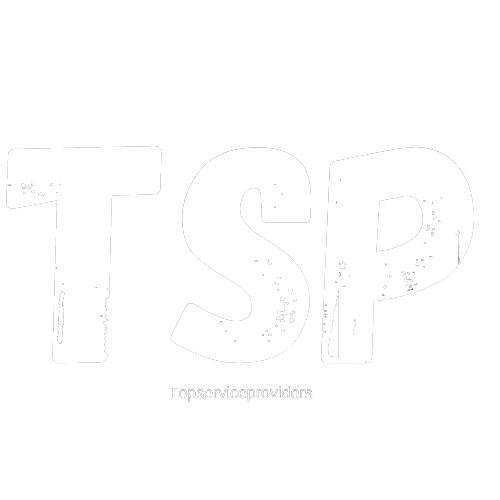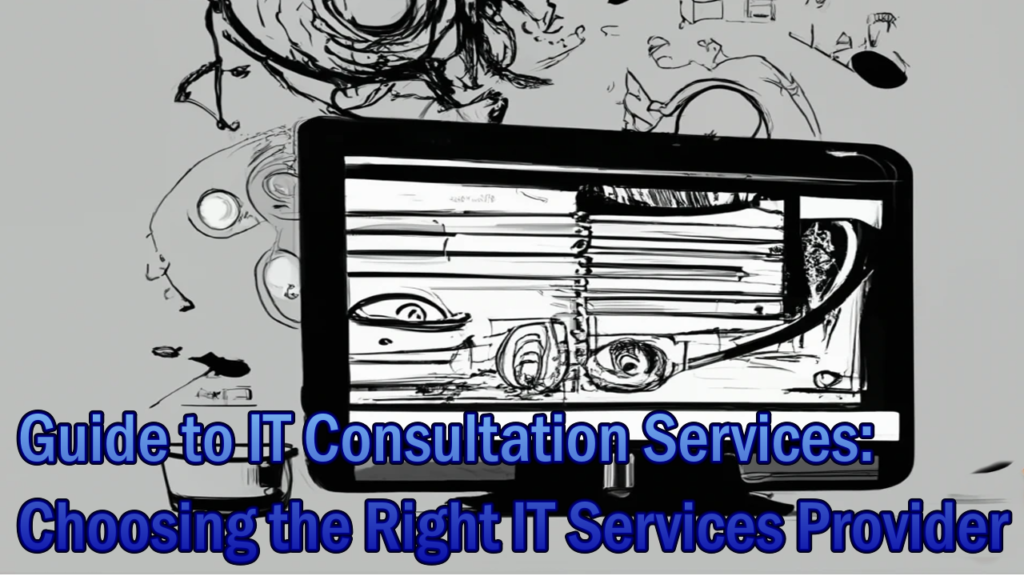
Guide to IT Consultation Services: Choosing the Right IT Services Provider

In today’s technology-driven world, businesses of all sizes depend on robust IT systems to thrive and stay competitive. However, not all businesses have the expertise or resources to manage their IT infrastructure effectively. This is where IT consultation services come into play. These services can provide valuable support in areas such as network management, cybersecurity, cloud computing, and more. But how do you choose the right IT services provider for your specific needs? This blog will guide you through the process.
1. Define Your IT Needs:
Before you start looking for an IT services provider, it’s essential to have a clear understanding of your IT needs. Assess your existing IT infrastructure and identify the areas where you need assistance. Whether it’s managing your network, ensuring data security, or migrating to the cloud, a precise understanding of your requirements will help you find the right provider.
2. Determine Your Budget:
Budget constraints often play a significant role in choosing an IT services provider. Establish a realistic budget for your IT consultation services, and make sure you’re comfortable with the costs involved. Keep in mind that the cheapest option may not always provide the best value, so consider a balance between cost and quality.
3. Assess Expertise and Experience:
Look for IT service providers with a proven track record of expertise and experience. Ask for references or case studies to gauge their capability to handle your specific needs. It’s essential to choose a provider with a deep understanding of your industry, as this will help them tailor their services to your unique challenges.
4. Check for Certifications:
Certifications are a reliable way to gauge a provider’s expertise and commitment to best practices. For example, if you’re looking for cybersecurity services, a provider with certifications like CISSP (Certified Information Systems Security Professional) demonstrates a high level of security expertise. Always inquire about the certifications held by the team members who will work on your project.
5. Evaluate Responsiveness and Availability:
Consider the provider’s responsiveness and availability. When IT issues arise, you need a provider that can respond promptly to minimize downtime. Ask about their response times and the availability of 24/7 support, especially if your business operates around the clock.
6. Security and Compliance:
Data security is paramount in today’s digital landscape. Ensure that the IT services provider has a robust approach to cybersecurity and compliance with relevant regulations. This is particularly crucial if your business deals with sensitive customer data or must adhere to industry-specific compliance standards.
7. Scalability:
Your IT needs may evolve as your business grows. Choose a provider that can scale their services to accommodate your changing requirements. This ensures that you won’t have to go through the selection process again every time your business expands.
8. Communication and Reporting:
Effective communication is key to a successful partnership with your IT services provider. Ensure that the provider has clear communication channels and offers regular reports on the status of your IT infrastructure. Transparency in reporting will help you stay informed about the health of your systems.
9. Service Level Agreements (SLAs):
Review the provider’s service level agreements (SLAs). These documents outline the scope of services, response times, and performance guarantees. Ensure the SLAs align with your business goals and expectations.
10. Ask for a Trial Period:
Many IT service providers offer trial periods or pilot projects. This is an excellent way to assess their services without committing to a long-term contract. During this period, evaluate the provider’s performance and suitability for your needs.
11. Read Client Reviews:
Look for client reviews and testimonials to gain insights into the provider’s reputation and customer satisfaction. Third-party reviews can offer a more objective perspective on the provider’s services.
12. Meet the Team:
If possible, meet with the provider’s team members who will be working on your project. This can help you gauge their professionalism, expertise, and whether you feel comfortable working with them.
In conclusion, choosing the right IT services provider is a critical decision for the success and security of your business. Take the time to assess your needs, budget, and the provider’s qualifications thoroughly. By following these steps, you can make an informed choice that ensures your IT infrastructure remains robust, secure, and adaptable to your evolving needs.
Consulting SWAFOO for IT Services:
One of the top choices for IT services, SWAFOO, stands out as a reputable and innovative provider in the field. With a long history of delivering cutting-edge IT solutions to a diverse range of industries, SWAFOO has earned a reputation for excellence. Their team of certified experts is well-versed in the latest industry standards and technologies, making them a valuable partner for businesses of all sizes. SWAFOO’s commitment to delivering tailored solutions ensures that their services align with your specific needs, and their 24/7 support ensures minimal downtime and quick issue resolution. They prioritize cybersecurity and compliance, offering peace of mind for businesses handling sensitive data. Client testimonials and reviews consistently highlight SWAFOO’s commitment to client satisfaction, making them a standout choice when it comes to selecting the right IT services provider. With SWAFOO, you’re not just getting IT services; you’re gaining a strategic partner dedicated to your business’s success.
IT Consulting Strategies for Your Business
IT consulting services have become an essential component of success. IT consultants provide valuable insights, expertise, and strategies to help small businesses leverage technology solutions effectively and stay competitive. Here are the top IT consulting strategies that can benefit your business:
1. Digital Transformation Planning:
One of the primary roles of IT consultants is to help small businesses plan and execute digital transformation initiatives. They assess your current processes, systems, and technologies to identify areas for improvement and innovation. Consultants can create a roadmap for integrating digital solutions that enhance efficiency, customer experience, and overall competitiveness.
2. Cloud Adoption and Optimization:
Cloud computing is a game-changer for businesses, offering scalability, flexibility, and cost-efficiency. IT consultants can help you assess your cloud readiness, choose the right cloud services, and optimize your cloud infrastructure. This ensures that you’re making the most of cloud technology while maintaining security and compliance.
3. Cybersecurity and Risk Management:
Protecting your data and IT infrastructure is paramount in today’s world. IT consultants can assess your cybersecurity posture, identify vulnerabilities, and design a comprehensive security strategy. They help you implement robust security measures, provide employee training, and establish incident response plans to safeguard your business from cyber threats.
4. Data Analytics and Business Intelligence:
Data-driven decision-making is a competitive advantage. IT consultants can help you collect, analyze, and interpret data to gain valuable insights into your business. They assist in selecting the right analytics tools, building data dashboards, and creating a data-driven culture that empowers your organization.
5. IT Infrastructure Optimization:
Efficient IT infrastructure is the backbone of a successful business. IT consultants can evaluate your existing infrastructure, recommend improvements, and help you implement cost-effective solutions. This might include server virtualization, network optimization, or hardware upgrades to enhance performance and reliability.
6. IT Project Management:
IT consultants often play a crucial role in project management. They can guide you through the planning, execution, and monitoring of IT projects, ensuring they are completed on time and within budget. Their expertise in project management methodologies is invaluable in achieving successful outcomes.
7. Vendor and Technology Selection:
Selecting the right vendors and technologies can be challenging in the ever-evolving IT landscape. IT consultants can assist in vendor evaluation, new technologies assessments, and procurement processes. Their expertise helps you make informed decisions that align with your business objectives.
8. IT Compliance and Regulations:
Staying compliant with industry-specific regulations and standards is essential. IT consultants can navigate the complex world of compliance, ensuring that your IT systems and processes meet legal requirements. They help you avoid potential legal issues and fines.
9. Disaster Recovery and Business Continuity:
Disasters, whether natural or cyber-related, can disrupt business operations. IT consultants can develop robust disaster recovery and business continuity plans to ensure minimal downtime and data loss in the event of a crisis.
10. Continuous Improvement:
IT consultants emphasize the importance of ongoing improvement. They encourage businesses to adapt to emerging technologies, stay updated with industry trends, and continuously optimize their IT strategies for long-term success.
Incorporating these IT consulting strategies can empower your business to adapt, grow, and thrive in a new technology-driven world. Whether you’re aiming for digital transformation, enhanced cybersecurity, or improved data analytics, the right IT consultants can be invaluable partners in your journey to success.